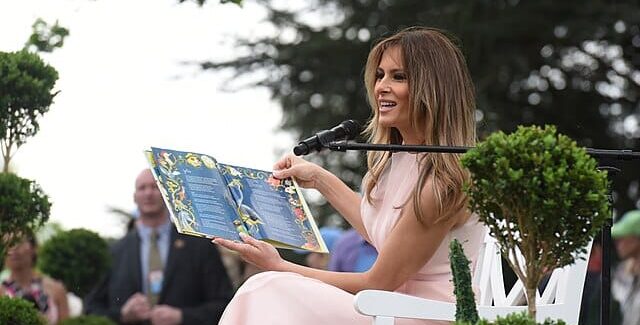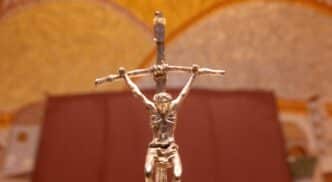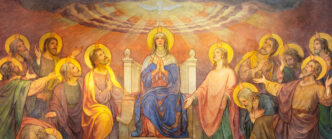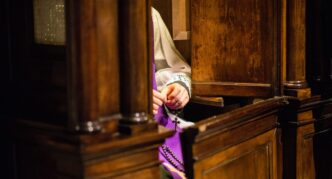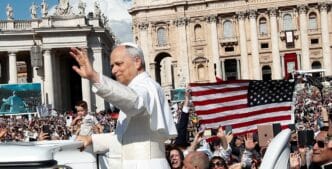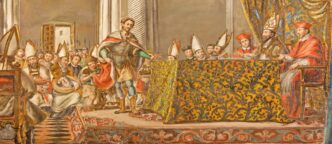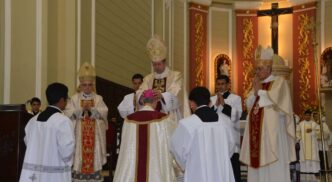Not long before Christmas in 2023, Melania Trump appeared at a Washington, D.C., ceremony where 25 people became United States citizens and spoke about her own experience as an immigrant to this country.
Recalling her remarks adds an interesting dimension to the current debate about immigration and deportation and gives insight into why the American bishops, and indeed two popes, have taken such strong positions on the matter, in the name of Jesus Christ.
Melania Knauss was born April 26, 1970, in Slovenia, which was part of the Austrian empire until the early 20th century. After the First World War, the victorious allies, including the United States, took Slovenia away from Austria and included it in the “kingdom of the Serbs, Croats and Slovenes,” or Yugoslavia, a nation they invented.
The country suffered much during the Second World War. When the war ended, communism overtook Slovenia and remained in control until 1990, when the communist government collapsed and Slovenia became a free, independent state.
Freedom did not instantly bring happy days. The transition from no private ownership to capitalism was difficult. Melania Knauss emigrated to Britain, where she worked as a model.
In 1996, she came to this country on a tourism visa. Needing money, and to find a job, she secured a work visa. Then she met Donald Trump. They were married in 2005. A year later, she became an American citizen, although she has retained her Slovene citizenship.
The empathy of shared experience
At the event in Washington, Melania Trump recalled her experiences as an immigrant. When she arrived in this country, she knew practically no one. Her knowledge of English was skimpy. People said that they could not understand her. She had few resources. She knew that if she lost her job and did not find another, she might lose her work visa and be deported.
If deported, she could be returned to Slovenia, where times still were hard.
It was a life of anxiety and uncertainty, filled with feelings of helplessness. She told the new citizens at the Washington event in 2023 that she knew what they had gone through. She had gone through the same.
Her remarks made news. After all, she was the first lady, the only first lady in history to be a naturalized citizen.
Frank, honest and empathetic, she spoke about herself, connecting her experiences as an immigrant with those of the 25 new citizens at the ceremony. In so doing, she put a human face on the immigration question.
The immigrants who now come to this country are in flight, as was she, maybe because of economics, maybe because of political oppression. As it has for centuries, this country offers hope, as it offered hope to Melania Knauss, a young woman in uncertain circumstances who wanted to live with hope and in peace, decency and security.
Certainly, she was not a criminal of any sort. There are criminals among immigrants, but abundant professionally accumulated data show that crime occurs no more frequently among immigrants than among native-born American citizens.
Called to welcome strangers
At this time, the Church is vocal in telling all, certainly Catholics, to “welcome strangers,” as Christ firmly insisted we are to give shelter to the homeless and feed the hungry (Mt 25:37-40).
In this response, nothing is more Catholic, nothing more Christian. The bishops are doing exactly what their predecessors did in receiving desperate Irish immigrants during the Great Hunger of the 1840s and ’50s, or displaced persons after the Second World War, or refugees from Castro’s Cuba, the Hungarian rebellion or communist Vietnam.
They see a human face, the face of a child of God, in the countenance of each immigrant.
Genuine problems exist. Incidents are occurring. People are suffering. Politicians cannot agree. Feelings are high.
Melania Knauss Trump set a fine standard. Put a human face on it. Most of all, put the face of Christ on it.

